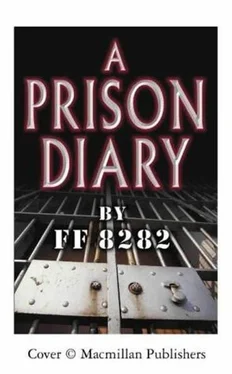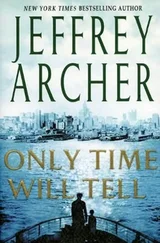‘It’s all good news,’ he tells me. ‘The media have worked out that you have nothing to answer, and we’ve been through your files and they show the matter was raised in Parliament in 1991 when Lynda Chalker was Overseas Development Minister and she gave a robust reply. She also wrote you a long letter on the subject at the time.’ He slides both the letter and the Parliamentary reply across the table.
‘Was Ms Nicholson an MP then?’ I ask.
‘She most certainly was,’ says Tony, ‘and more importantly, a full investigation was carried out by the Foreign Office, so we’re sending all the relevant papers to the police and pointing out that a second inquiry would be an irresponsible waste of public money.’
‘So can I sue her for libel?’ I ask.
‘Not yet,’ he replies. ‘I talked to the police yesterday, and although they will not release a copy of the letter she sent to them, they made it clear that the accusations were such that they had no choice but to follow them up.’
‘If we issue a writ, will she have to release that letter?’
‘Yes. It would automatically become part of the evidence.’
‘Then we must have grounds to sue her.’
‘Not yet,’ Tony repeats. ‘Let’s wait for the police to drop their inquiry before we take any further action. And that could be quite soon, as Radio 4’s Today Programme have been in touch with Mary. Their research team are also convinced that you have no case to answer, and they want her to appear on the programme.’
‘Of course they do,’ I say, ‘because all they’ll want to talk to her about is my appeal.’
‘As long as she doesn’t discuss the case while an appeal is pending, I’m in favour of her doing the interview.’
‘She could of course quote from Lynda Chalker’s letter and the Parliamentary reply,’ I suggest.
‘Why not?’ says Tony. ‘But let’s proceed slowly, step by step.’
‘Not something I’m good at,’ I admit. ‘I prefer proceeding quickly, leap by leap.’
Tony then removes some papers from his briefcase, and tells me that the appeal will be officially lodged tomorrow. I have to sign an agreement to appeal against sentence, and another against conviction.
Tony would give me a fifty-fifty chance of having the verdict overturned if it were not for the ‘Archer’ factor. ‘If you weren’t involved it would be thrown out without a second thought. There wouldn’t even have been a trial in the first place.’ He puts the odds even higher on getting the sentence reduced. Mr Justice Potts’s comment that mine was the worst example of perjury he had ever known has been greeted by the legal profession with raised eyebrows. [39]
We then turn to the subject of the prison diary, of which I have now completed fifty thousand words, and I warn him that it’s going to come as a shock to most of my regular readers. He asks how I’m getting the script through to Alison, remembering this is the tightest-security prison in Europe. I remind him that I am still receiving two to three hundred letters a day, and the censors allow me to turn them round and send them back to my office the following morning, so another ten handwritten pages aren’t causing the censor any concern.
‘Which reminds me,’ I continue, ‘could you ask James to wear a cheap watch the next time he visits me, and then I can exchange my Longines.’ I hadn’t for a moment imagined I would end up in prison, so I was wearing my favourite watch on the day of the verdict, and after twenty years I’d be sorry if it was stolen. James has hankered after it for some time and has already asked me to leave it to him in my will (mercenary brat). ‘Will can have the rest of the estate as long as I can have the watch,’ James insists. Longines have stopped making that particular slim model. Nevertheless, William had agreed to the deal as he considers the overall arrangement very satisfactory.
‘I think you’d better wait until you’ve left Belmarsh before you start swapping watches,’ advises Tony. ‘And then only when you can be sure that the regulations are a little more relaxed.’
We complete all legal matters, and as he can’t escape until the hour is up, we turn our thoughts to the World Athletics Championships in Edmonton, where I had hoped to be spending my summer holiday with Michael Beloff. [40]Tony tells me the fantastic news that Jonathan Edwards has taken the gold in the triple jump.
‘He won easily,’ Tony adds, ‘clearing nearly eighteen metres. He’s so relaxed since his gold in Sydney that I doubt if he will be beaten before the next Olympics at Athens in 2004, and even Mr Justice Potts won’t be able to stop you being there to witness that.’
When the prison officer returns to open the door on Tony’s side of the room, I leave him in no doubt that the number one priority is sorting out the Kurdish debacle, so that my D-cat can be reinstated as quickly as possible. I also add that I do not require any lawyers to travel to Norfolk at vast expense. They can relay messages through Mary, who’s as bright as any of them. Tony smiles, agrees and shakes hands. He has the hands of a heavyweight boxer, and I suspect he’d survive well in prison. They release him, but as I don’t have a yellow band around my wrist, I slump back into the seat on the other side of the table and wait.
12 noon
In the lunch queue – always a great place to catch up on the gossip – Fletch briefs me on Joseph’s problem. I now understand why he couldn’t pot a ball on the pool table this morning. When I reach the hotplate, Tony recommends the ‘spaghetti vegetarian’, which is disguised to look like bolognaise.
‘Au gratin?’ I suggest.
‘Of course, my Lord. Liam, fetch his lordship the grated Parmesan.’ A small plastic packet of grated cheese is produced from under the hotplate, opened in front of the duty officer and sprinkled over my spaghetti. This is greeted with a huge round of applause from the prisoners and laughter from the officers. In a lifer’s day, this is an event
Back in my cell I enjoy the dish, but then it is my twentieth day on prison rations. I’ve been able to take another notch in on my belt. So I reckon I’ve lost about half a stone.
2.00 pm
When the cell door is opened again, I dash down to the middle level, already dressed in my gym kit, and keep running on the spot by the barred gate. This time I am ticked off the select list of eight from our spur. After a search followed by a route march to another part of the building I’ve never been to before we arrive in a changing room where we are all supplied with a light blue singlet and dark blue shorts. This, I assume, is just in case any prisoner has spent time at both Oxford and Cambridge.
The gym is divided into two sections. The larger room is the size of a basketball court, where twelve of the prisoners play six-a-side football. We currently have one former Arsenal and Brentford player residing at Belmarsh. There is also a weight-lifting room, about a third of the size of the basketball court, where forty-seven sweaty, tattooed, rippling muscled youths pump iron, so that when they get out of here they will be even more capable of causing grievous bodily harm.
The room is so packed that you can’t move more than a few feet without bumping into someone. There are two running machines, two rowing machines and two step machines, in which the younger prisoners show scant interest. I do a six-minute warm-up on the running machine at five miles an hour, which affords me an excellent view of what’s going on in the centre of the room. The forty-seven fit young men are pumping weights, not a pretty sight, especially as most of them are simply on an ego trip to establish their status among the other prisoners on the block. I wonder how many of them have worked out that Fletch, Tony, Billy and Del Boy carry the most influence on our spur, and not one of them would be able to locate the gym.
Читать дальше












